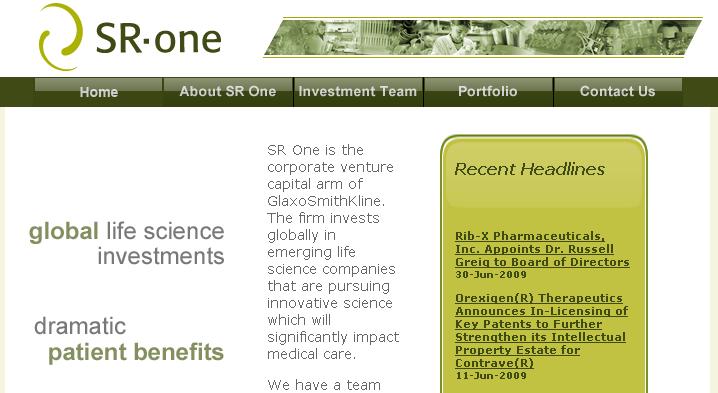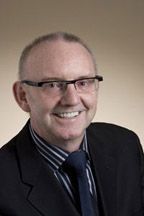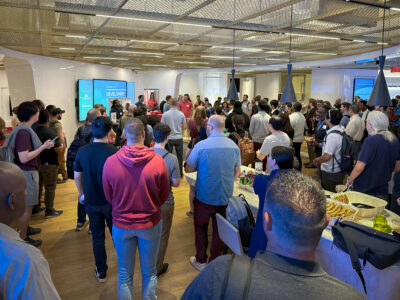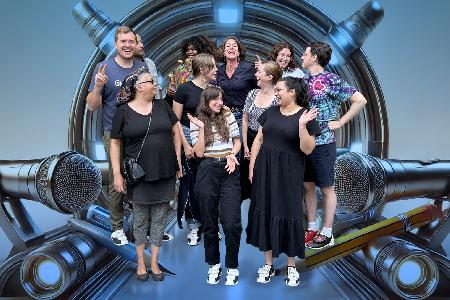
Russell Greig has come a long way.
The 57-year-old Scotsman, who still carries that signature and recognizable accent, rode a Fulbright scholarship and a nearly three-decades-long career with pharmaceutical giant GlaxoSmithKline to head SR One, the company’s corporate venture capital arm that is no small part of this region’s VC scene, last year.
Greig himself is a fine personification of GSK’s history, now a London-based multinational that grew through several mergers and acquisitions from a 19th-century Philadelphia research laboratory.
GSK still has Philadelphia offices, but it is decidedly an international affair now, neatly represented by Greig and his resume stuffed with international datelines.
SR One itself has, perhaps like Greig who assumed his new leadership role in June 2008, moved. It was launched 24 years ago in Center City but now is a suburban venture, nestled in Conshohocken, like what regional biomedical companies in which they invest.
The University of Manchester alumnus seems to like it here though, raving about the schools and calling those Philadelphia suburbs home to more beautiful trees and seasons than most anywhere he’s seen.
But our life sciences he says, just might not be as distinctive as we’d like to think, no matter the recent attention we’ve gotten for them.
Below, Greig explains why SR One is so Philadelphia, what he would do if he was king and why he “carefully” calls our region’s biomedical innovation disappointing.
Interview edited for length and clarity.
Tell me about SR One and its relationships with GlaxoSmithKline and Philadelphia.
 SR One was launched in 1985 as a very small corporate venture on the 24th floor of Franklin Plaza. It was set up as a financial play to make investments in what was then a rapidly growing biotech sector… In May or June of last year, it was a function of the R&D business, so we reported to R&D. When our former CEO Jean-Paul Garnier retired and Andrew Witty became the new CEO, the function and composition of SR One was changed quite rapidly. We were taken out of R&D and now report directly to the CEO, quite conventional now for corporate venture funds… We have 11 professional investors, 9 in Conshohocken and the other two are in London. But, I should add, something that many people don’t know, the SR in SR One stands for Schuylkill River… So SR One is very much a Philadelphia-based organization.
SR One was launched in 1985 as a very small corporate venture on the 24th floor of Franklin Plaza. It was set up as a financial play to make investments in what was then a rapidly growing biotech sector… In May or June of last year, it was a function of the R&D business, so we reported to R&D. When our former CEO Jean-Paul Garnier retired and Andrew Witty became the new CEO, the function and composition of SR One was changed quite rapidly. We were taken out of R&D and now report directly to the CEO, quite conventional now for corporate venture funds… We have 11 professional investors, 9 in Conshohocken and the other two are in London. But, I should add, something that many people don’t know, the SR in SR One stands for Schuylkill River… So SR One is very much a Philadelphia-based organization.
Your background is through the research and development arms of GSK. What have you learned in your decades-long work in that portion of the industry?
I’ve seen the trends, the big companies merging and consolidating. And when that consolidation hasn’t been particularly helpful, you aren’t seeing de-consolidation but rather externalization. Once 90 percent of the [R&D] budget of GSK was for in-house work, but now almost 50 percent is funding research outside of our four walls, mainly in collaboration with biotech companies on a global basis.
That leads to second point and perhaps a challenge for the region. We would love to fund in the Pennsylvania area for obvious reasons. But we’re seeing the development of life sciences throughout the world, most prominently in the BRIC markets, with some exception… That means for good biotech work, the competitive field has gotten an order in magnitude tougher. So, maybe 25 years ago there was innovative work being done by a company in Malvern or Collegeville and so we’d look to make an investment. Now, that work is being done in Malvern, but it’s also being done in Shanghai or Taipei.
What is something you learned about Philadelphia in your first year at the helm of SR One.
I’m going to say something controversial. I’ve always been disappointed, well, I’ve always felt that Philadelphia punches the lowest weight when it comes to producing successful entrepreneurs, particularly in what we would fund. By and large with the amount of money spent at Philly research institutions and universities, why isn’t the immediate geographical area more successful in creating and retaining really innovative entrepreneurs [in the life sciences]?
So what’s the answer?
The great portion of the money SR One invests goes to companies in Boston, San Francisco and San Diego. Maybe as little as five percent of our investment goes into this mid-Atlantic region. There isn’t a large city or state that hasn’t tried to find that secret sauce. But it’s been much more difficult for them culturally to get their act together and become competitive. We’re still looking for a spark here.
What was the last innovative company in our region that SR One invested in?
One was NuPathe in Conshohocken, which we topped off maybe 18 months ago… They’re taking an existing drug for migraines and developing a patch form to simply put on the skin and receive the dosage. Many patients with migraines get nauseous when using oral doses, so we’re very optimistic about the possibilities for that product.
If you were made King of this region tomorrow. What would be the first step you would make to increase the biomedical innovation in Philadelphia?
If I was made king, if I was governor of Pennsylvania, well, I’m going to say this very carefully [laughs]. What I would try to do is consolidate administratively and bureaucratically the major life sciences intellectual centers in Philadelphia and Pennsylvania — universities and research institutions — and bring them together into one unit under one office of technology transfer, and, like at a place like MIT, link compensation and tenures for professors to their ability to generate spinoffs, put those companies in the metrics for evaluation. Yes, we have to have intellectual freedom, but create jobs and add value for taxpayers, that should be part of the responsibility too.
Every Friday, Technically Philly brings an interview with a leader or innovator in Philadelphia’s technology community. See others here.
Before you go...
Please consider supporting Technical.ly to keep our independent journalism strong. Unlike most business-focused media outlets, we don’t have a paywall. Instead, we count on your personal and organizational support.
Join our growing Slack community
Join 5,000 tech professionals and entrepreneurs in our community Slack today!

Not all jobs are the same. Why do workforce agencies treat them like they are?

4 football lessons a former pro athlete turned into fundraising gold

After nearly a decade, the federal program for immigrant entrepreneurs is finally working

